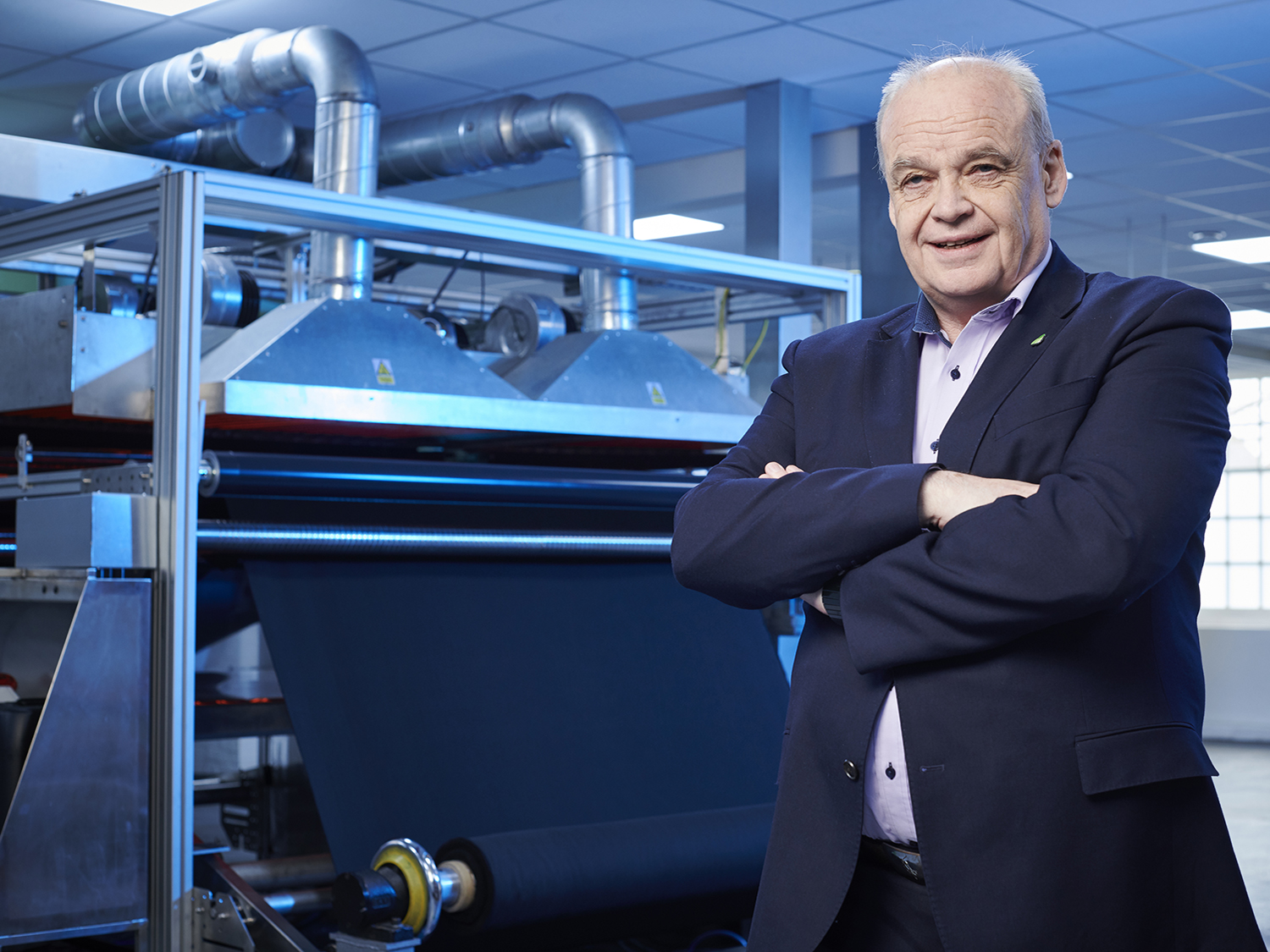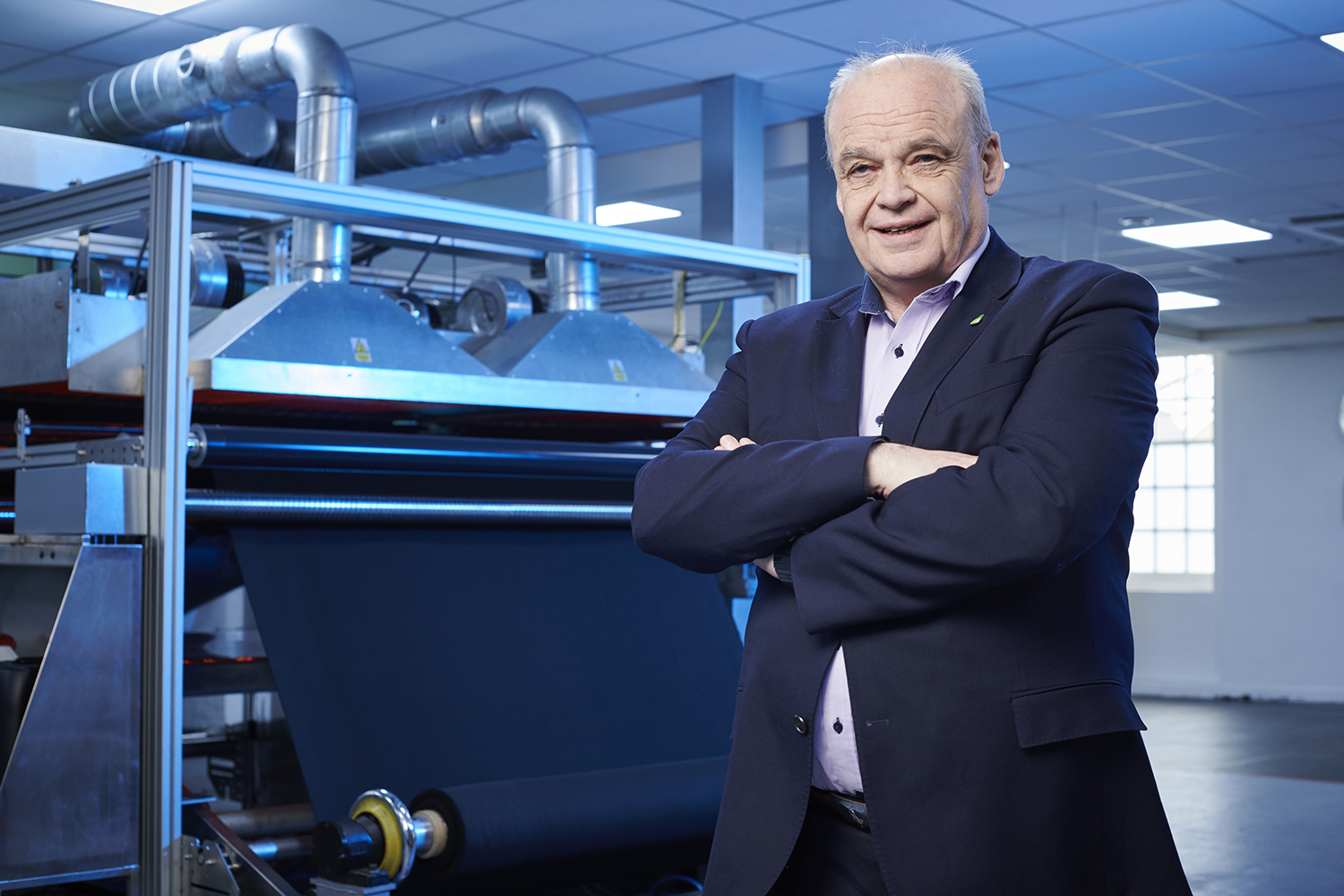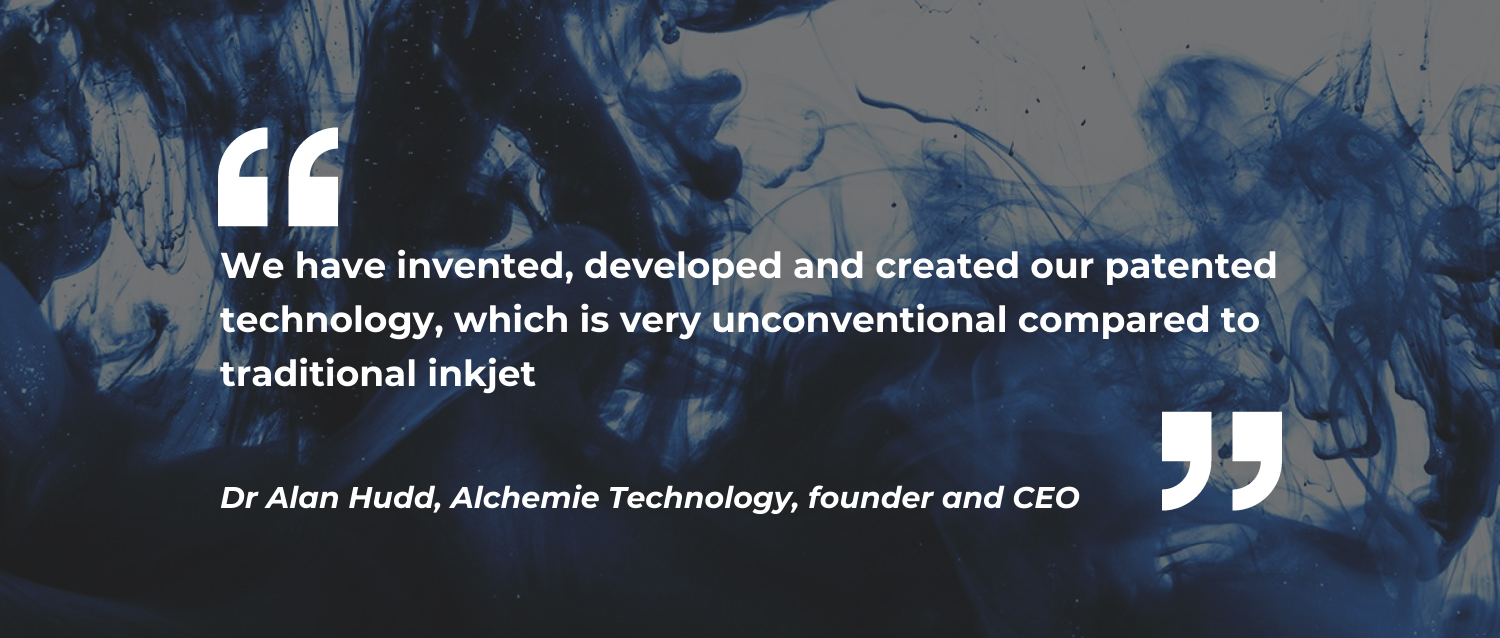
Sponsored by Alchemie Technology
Alchemie Technology talks to Madelaine Thomas, head of content at WTiN, about its plans to supply the textile industry with technology that will address the negative impact dyeing and finishing processes have on the environment.
What is Alchemie’s mission?
Alchemie Technology is set to transform the textile industry by supplying clean-tech digital manufacturing solutions, effectively addressing the negative environmental effects usually associated with conventional textile dyeing and finishing processes. Alchemie’s digital technologies for dyeing and finishing result in a substantial decrease in energy usage and the elimination of contaminated wastewater emissions.
The EndeavourTM dyeing process utilises Alchemie’s proprietary jetting technology to deeply penetrate fabric fibres with microdroplets of dye. Infrared energy is then employed to activate dye fixation, eliminating the need for water and the energy-intensive fabric washing inherent in traditional dyeing methods. Alchemie’s NovaraTM digital finishing solution incorporates innovative technology and digitally controlled nozzles to precisely apply high-quality functional finishes, such as water resistance, exactly where they are needed on the fabric – such as the exterior of a raincoat.
The key advantages of adopting Alchemie’s digital approach to textile dyeing and finishing include an energy consumption reduction of more than 85%, the complete elimination of wastewater emissions, and substantial operational cost savings exceeding 50%.
Founder and CEO Dr Alan Hudd has been central to many important technology developments over the last 30 years in the field of digital and inkjet printing. He has more than 250 patents to his name and has been recognised for many commercial industry successes.
How do you see incoming and existing regulations impacting the uptake of new technology such as Alchemie’s?
The European Union’s Textiles Transition Pathway aims to determine the impact of digital and green transitions on the textile ecosystem. This involves the integration of digital technologies such as Endeavour and Novara into the textile industry to enhance efficiency, innovation and competitiveness.
Additionally, Alchemie has endorsed and backed the recent New York Fashion Act, a legislative initiative in the state of New York, US, aimed at establishing a precedent for holding major brands responsible for their impact on both workers and the environment. Endeavour and Novara solutions play a crucial role in empowering brands to adhere to the principles outlined in this legislation.
What are the challenges associated with implementing your technology in existing textile manufacturing facilities?
A significant challenge to scaling the technology is the entrenched reliance on traditional methods within dyehouses. The disruptive and innovative nature of the change requires collaborative efforts with brands to help dyehouses embrace and implement the technology. To overcome this issue, we have adapted our business model to a working partnership between brands and Alchemie to accelerate the adoption of Alchemie’s technology into the industry.
What are the potential long-term benefits of using Alchemie’s technology for water conservation and wastewater reduction in the textile industry?
The regions in which there is clear scope for change in this field are not close to the consumers that benefit from it. In Indonesia, for example, the Citarum River has more than 200 textile dyehouses that are directly discharging untreated wastewater into the river, which has caused widespread socio-economic and environmental problems for people living along its banks. For context, approximately 25 million people are living along the banks of the river, whose livelihoods and incomes are directly affected by these problems. Governments are held hostage by brands and dyehouses that use their investment in the region and job provision as leverage for polluting the local waterways.
Technology such as Endeavour can eliminate wastewater emissions, cut the amount of water being used by 95%, and reduce carbon emissions in Indonesia by 72.1% more than a traditional jet exhaust dyeing machine. Therefore, the technology can not only stop the waste effluent from reaching the waterways, but it can also help governments to enforce the policies that they desire for their countries, without having to rely on investment from companies using polluting manufacturing processes.
Textile dyeing is the second largest contributor to global wastewater pollution. Through working partnerships with charities or NGOs, there is scope to provide training and capital to clean the waterways and resolve the problem. A viable clean-up operation is the first step to eliminating this unnecessary environmental damage and providing a clean and fertile landscape for future generations. The societal impact will be exponential.
How does this solution compare to other similar solutions in its sector/industry?
Endeavour and Novara deliver the highest percentage savings across key indicators such as water, energy, and chemistry. Additionally, we enable brands to utilise non-proprietary dye and finishing chemistry, providing them with a broad spectrum of choices for both colour and functional finishes. The solutions represent a precise process, utilising only the necessary amount of dye or chemicals required.
The solutions feature remote internet diagnostics, allowing for system updates and troubleshooting to be conducted remotely from the UK, eliminating the necessity for international travel and minimising production downtime.
What are Alchemie’s future plans for developing and improving its digital dyeing technology?
Alchemie’s plans for developing and improving technology encompass a broad scope, with a primary focus on expanding the range of fabrics and handling solutions. Alchemie is dedicated to advancing technology and anticipates launching innovative solutions for handling knits this year (2024). By taking strides to ensure that advancements are not restricted, Alchemie aims to create a comprehensive and adaptable technological landscape. Moreover, the commitment to collecting Life Cycle Assessment (LCA) data underscores the company’s dedication to sustainability and responsible development, reinforcing its position at the forefront of technological evolution within the textile industry.
Have your say. Tweet and follow us @WTiNcomment





